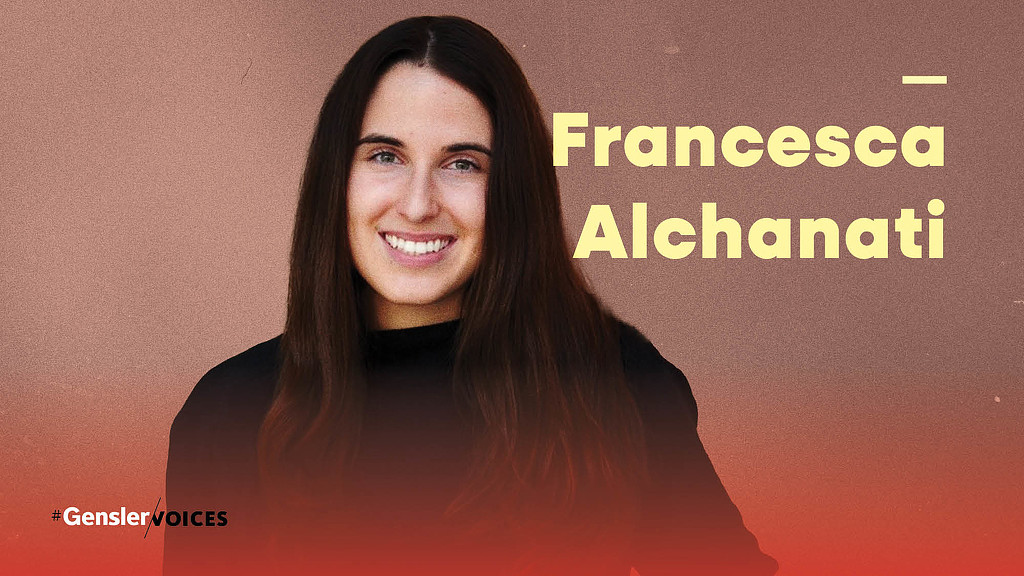Gensler Voices: Francesca Alchanati on The Profound Impact of Design
September 12, 2024
This Q&A is part of a series of interviews with Gensler architects, designers, and others in the firm about their career journey, and the impact that design and architecture can have on our communities and the human experience. Here, we sit down with Francesca Alchanati, a designer in our Washington, D.C. office:
How can architecture and design make space that’s inclusive for everyone?
My recent trip to Rwanda profoundly reinforced my understanding of the transformative power of architecture in creating inclusive spaces, particularly in the context of children's well-being. While working with the organization Parenting Child Care Rwanda, which focuses on Early Childhood Development (ECD), I witnessed the construction of 7 ECD centers attached to existing primary and 12 years basic education schools. These centers prioritize accessibility and inclusivity, incorporating the integration of natural light and outdoor spaces to provide a conducive educational environment. Additionally, the organization's home-based ECD initiative further emphasized the holistic development of children, providing them a space to learn to read and write, learn songs and games, interact with others and have balance diet, hygiene and sanitation, develop values.
This experience underscored for me the profound impact that architecture can have on shaping the future of children - it's not just about constructing buildings; it's about creating environments that nurture growth, inspire creativity, and empower the next generation.
How were you first introduced to architecture and design?
My fascination with architecture began in the second grade during my elementary school's career day. It was there that my friend's father, who was involved in a hotel project near our school, captured my imagination. Witnessing the transformation of an empty lot into a fully realized building over the course of the year left me utterly amazed. What struck me most was the realization that this seemingly ordinary individual, someone I knew, had played a pivotal role in bringing that structure to life. In that moment, the notion of architecture ceased to be the work of superheroes; instead, it became an inspiring and tangible profession that I aspired to pursue.
What do you think is the power of design?
I believe this question can be answered by the first one on how architecture can be inclusive for everyone. In my view, the true power of a space lies in its ability to evoke feelings of comfort, motivation, and ease in individuals. When a space can achieve this, it transcends mere functionality; it becomes a force that positively influences people's experiences and emotions.
For media inquiries, email .
